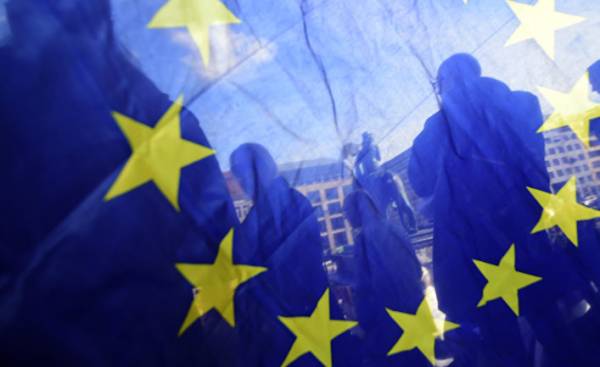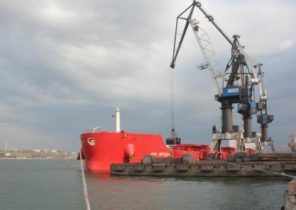
Next Sunday the French will decide the fate of not only his country, but also throughout Europe. The passage of the candidate from the National front of marine Le Pen in the second round is already considered as something obvious. If she wins, France is the second time in less than a year will give preference to the closure of borders and denial of continental integration that characterizes the European Union (EU).
Following the British example, Marin promises to hold a referendum to seek the withdrawal of France from the EU. But even if in the second round, she will relinquish the current favorite to Emmanuel Macron, will remain intact strength, which made her an acceptable candidate for the average Frenchman, and her party, only a few years ago was regarded as a minor group of racists and anti-Semites, one of the main political forces in the country. A similar phenomenon has led to Brexia and contributed to the victory of Donald trump in the United States.
These forces brought to power right-wing authoritarian regimes in countries such as Hungary, Poland and the Czech Republic — and contributed to the rise of Marxist populism in Greece and strengthen the most radical left movements in Spain and the UK. “Today’s Europe is falling apart. She was growing ever less democratic, is experiencing economic stagnation, it is threatened by extreme forces of all kinds, starting with the anti-liberal left and ending authoritarian rule, gradually she comes to once-unthinkable path of war, — the journalist writes James Kirchik (James Kirchick) in a recent book “the End of Europe. Dictators, demagogues and the coming age of obscurantism” (The end of Europe — Dictators, lowliest demagogues and the coming Dark Age). Brussels is all a convenient scapegoat, whom the Hungarian neo-fascists blame the problems of Hungary as easily as the Greek Marxists in the problems of Greece”.
In a recent article published in Foreign Policy, Kirchik has offered readers an imaginary scenario of events in 2022. Russia invades Estonia and Ukraine. Hungary, Poland and Slovakia leaving EU. The block crumbles as soon as left-wing or right-wing nationalist regimes seek to dismantle the institutions built over the past seven decades and the continent is entering a new era of militarism and regional disputes. Kirchik himself admits that this hypothesis is far from the current reality.
But to exclude its probability is not worth it. In his book, the author stays true to the realities of today that match any imagination. “Almost no one believed that the Soviet Union will collapse, until this moment came, he says. We also err in believing the constancy of economic and political stability of Europe. This is not the natural state of things.” For over six years Kirchik worked as a correspondent on the continent, and all the recent crises known to him firsthand.
In the eight chapters of his book, he analyzes the most serious illnesses that affect Europeans: the expansionism of Russia; a revisionist authoritarianism of Hungary; the ambivalence of Germany in relation to Eastern Europe; irresponsible tolerance of Muslim immigration; resurgence of anti-Semitism in France; the British exit from the EU; economic populism in Greece; and the struggle for the European soul in the Ukraine, where the first victims fell, the demonstrators, who under the EU flag.
Although the reader may not agree with the author’s position, Kirchik is possible to avoid the ideological traps and paint an accurate picture of what’s at stake: it points to the emergence of radical initiatives in the vacuum left by the political class, primarily the parties of the social-democratic wing, which were unable to respond to the challenges of integration.
In the former socialist electorate of the French national front and the Greek SYRIZA find their voters. The findings of Kirchik sound pessimistic: “We are definitely witnessing the end of Europe as we knew her in the last seventy years in Europe as a center of peace, stability, prosperity, democracy and social harmony.” The author regrets the weakening and possible demise of the European Union.
“Although there are many arguments in favor of European integration, perhaps the most powerful of them is the following: the alternative is much worse — he writes. — Historically, Europe is not a collection of sovereign and independent States, easily leading trade and cooperation, but group of countries, hard fighting each other for power and Imperial expansion. Despite all the utopian trap, the EU essentially is based on negative lessons. Its creation meant the rejection of all made by Europeans earlier and recognized them incorrect. We are not talking about the argument in favor of a European Federal superstate in which countries would transfer all the power to Brussels just as the American States are subject to the Washington. But, until all sides screaming about what Europeans allegedly lost “sovereignty” in favor of ghostly bureaucrats, it will be useful to recall that living in a supranational body of the EU, they enjoy much more rights and freedoms than in any other period of its history”.







